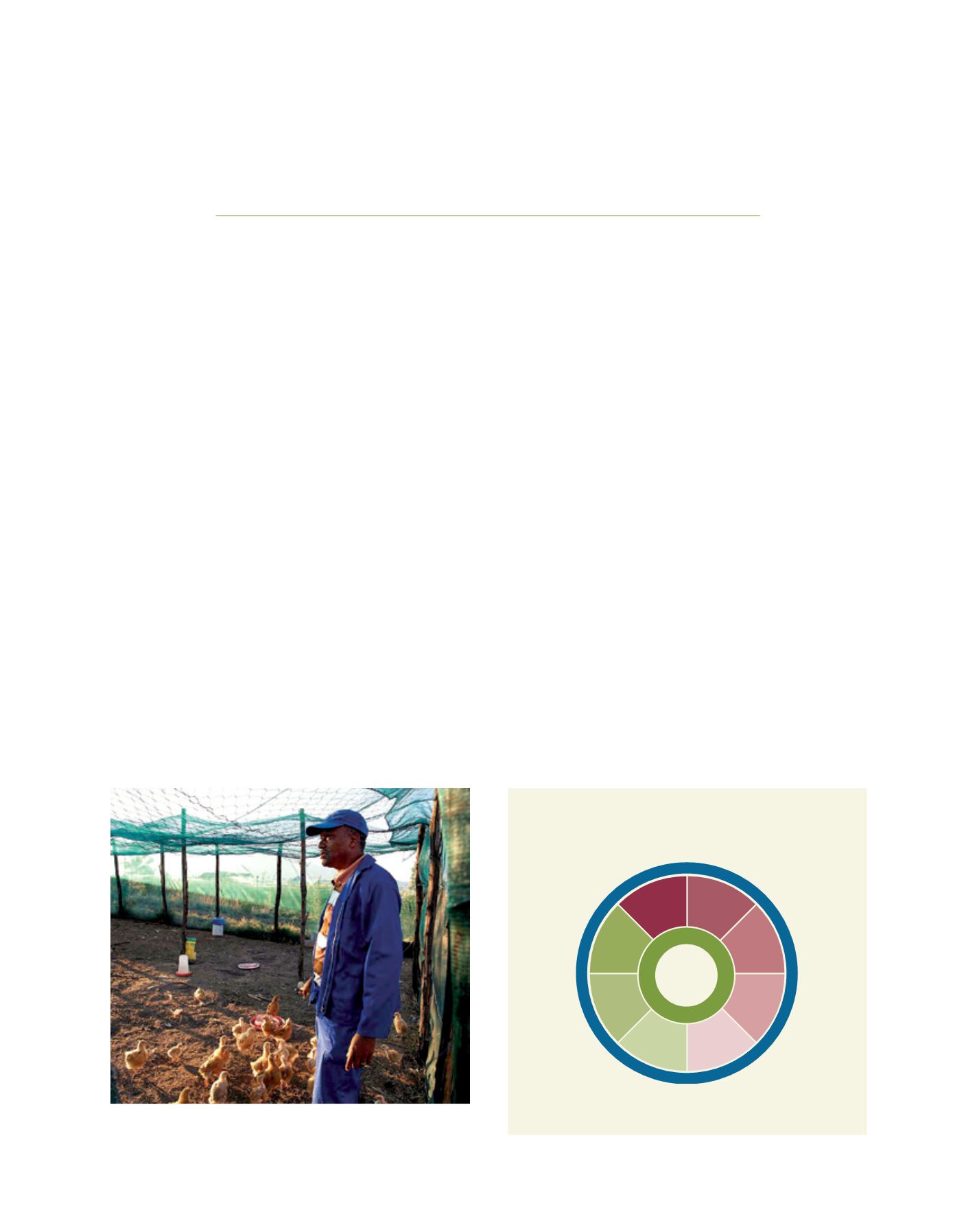

[
] 227
A holistic approach in support
of family farming in South Africa
Aggrey Mlulami Mahanjana, Secretary-General, African Farmers’ Association of South Africa
The wagon wheel holistic approach to
farmer support and development
Source: NERPO
A
griculture is one of the most strategic and impor-
tant sectors of African economy. It is the primary
source of livelihood for about 65 per cent of
fricans. It represents 30-40 per cent of Africa’s gross
domestic product and accounts for almost 60 per cent of
Africa’s export income.
1
As things stand today in Africa,
agricultural production is carried out mainly by family
farmers. According to the 2008 World Bank report, 1.5
billion people live on small farms. In sub-Saharan Africa,
80 per cent of farms are owned by families and about 60
per cent of the active population work on these family
farms.
2
These facts and figures show that family farming
plays an essential role in food production, sustaining rural
economies and stewardship of biodiversity.
Rising demand for food and fuel, coupled with resource deple-
tion and inadequate governance of the global food system, has
increased the fragility of the food economy, giving rise to calls
for a fundamental redesign of how food is produced, accessed
and utilized. As the food system presents us with an unprec-
edented level of complexity influenced by so many drivers,
existing strategies fail to adequately address the food secu-
rity challenge and recasting the current trajectory requires a
multi-level, multisectoral and multi-actor response.
Researchers have documented that South Africa is afflicted
by widespread food insecurity and hunger in both urban
and rural areas. While, in aggregate, the country has enough
resources to feed all of its inhabitants, one out of two house-
holds is at risk of hunger; almost 16 per cent of South Africans
consume less than adequate energy to meet their needs; and
about 22 per cent of children under nine years of age are
stunted. These statistics indicate that many South Africans
live in a state of chronic malnutrition.
Farming is a system by which human beings use resources,
especially land and water, to produce food and other crops, live-
stock and aquaculture products for their own consumption or the
markets. Any person who performs such an activity is regarded
as a farmer. Family farming is thus when a family engages in the
production of food, fibre or livestock as a way of producing food
for their own consumption or for sale to get income which can
be used to buy other goods the family might need.
According to the Food and Agriculture Organization
3
family
farming (also family agriculture) is a means of organizing agri-
culture, forestry, fisheries and aquaculture production which
is managed and operated by a family and predominantly
reliant on family labour, including both women’s and men’s.
The family and the farm are linked, coevolve and combine
economic, environmental, social and cultural functions.
Image: AFASA
Family farming is often more than a professional occupation, reflecting
a lifestyle based on beliefs and traditions about living and work
Logistics
Finance
Information
Technology
Labour
Farmer
Business
knowledge
& networks
Market
intelligence
Government
policy &
legislation
L
a
n
d
a
n
d
i
n
f
r
a
s
t
r
u
c
t
u
r
e
P
r
o
f
i
t
s
,
g
r
o
w
t
h
a
n
d
d
e
v
e
l
o
p
m
e
n
t
D
eep
R
oots
















